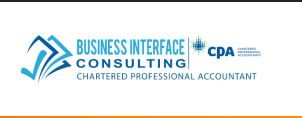How to Prepare for Your First Financial Audit: Advice from Winnipeg Experts
BF
Understanding the Purpose of a Financial Audit
Preparing for your first financial audit can be a daunting task, especially if you're unsure of what to expect. A financial audit is an evaluation of your business's financial statements and records by an independent auditor. The goal is to ensure accuracy and compliance with accounting standards. This process not only verifies your financial data but also strengthens your financial practices.

Gathering Essential Documentation
One of the first steps in preparing for a financial audit is gathering all necessary documentation. Start by organizing financial statements, including balance sheets, income statements, and cash flow statements. Additionally, compile bank statements, invoices, receipts, and any other relevant financial records.
Having these documents readily available will expedite the audit process and demonstrate your commitment to transparency. Consider using a digital document management system to keep everything organized and easily accessible.
Reviewing Internal Controls
Another critical aspect of preparing for an audit is reviewing your internal controls. These are the processes and procedures you have in place to ensure the integrity of your financial information. Evaluate the effectiveness of these controls and identify any areas that might need improvement.
Experts suggest conducting an internal audit or a mock audit to test the robustness of your internal controls. This proactive measure can help identify potential issues before the actual audit takes place.

Communicating with Your Auditor
Communication is key when preparing for a financial audit. Reach out to your auditor well in advance to discuss the scope of the audit, any specific requirements, and timelines. This will help you understand what to expect and how best to prepare.
Consider arranging a preliminary meeting with your auditor to discuss any questions or concerns you might have. This open line of communication can set the stage for a smoother audit process.
Training Your Team
Your team plays a crucial role in the preparation process. Ensure that key personnel are informed about the upcoming audit and are ready to provide any necessary information or clarification. Training sessions can be beneficial in familiarizing your team with audit procedures and expectations.
Encourage a culture of openness and honesty within your organization. This mindset will not only facilitate the audit process but also promote a more transparent financial environment overall.

Addressing Potential Challenges
No audit is without its challenges. Be prepared to address any discrepancies or issues that may arise during the process. It's important to approach these challenges constructively and work collaboratively with your auditor to find solutions.
Having a contingency plan in place for unexpected findings can be advantageous. Consider enlisting the help of financial experts if you encounter complex issues beyond your team's expertise.
Finalizing the Audit
Once the audit is complete, take the time to review the auditor's findings carefully. Address any recommendations or areas of concern highlighted in their report. This is an opportunity to enhance your financial practices and ensure ongoing compliance with accounting standards.
Remember, a successful audit can provide valuable insights into your business's financial health and lay the foundation for future growth and stability.

